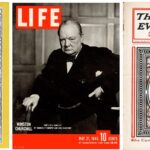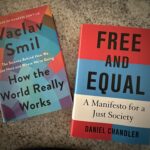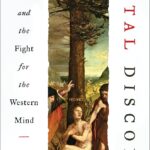This week, two reporters were suspended from their jobs at the St. Paul Pioneer Press here in the Twin Cities, for attending Bruce Springsteen’s Vote for Change concert. Reporters from the paper (as well as the Star Tribune) were told by their supervisers not to attend the concert, as it would somehow taint their objectivity when it comes to reporting the issues.
So what is really in question? Is attending a concert a political act? (When is attending any concert not a political act?) If this is what is in question, then you must ask where that line is drawn. Someone famous once said that everything is politics. What about subscribing to magazines, reading a book, attending a documentary? Are these political acts; if so are reporters to refrain for fear of spoiling their objectivity? What about all of the reporters who were sent to the concert to cover it as news? Did they have to go their against their will to prove that some “politics” might not rub off?
Some might argue that it’s not so much that reporters are prohibited from participating in the democratic process. Rather, that by attending such a concert reporters send the signal that they are supporting the cause. Their money, and sentiment, is publicly seen supporting a particular candidate.
“Several newspapers around the country had asked staff members not to attend the series of concerts held in Minnesota and other “battleground” states earlier this month,” writes Star Tribune reporter Deborah Caulfield Rybak. “That’s because ticket sales benefited an affiliate of the liberal group MoveOn, which would compromise the politically neutral stance expected of journalists. However, the Pioneer Press appears to be the only newspaper to suspend reporters for going.”
“Well, maybe at other papers, people went along with what their bosses said,” editor Vicki Gowler said Monday.
The Newspaper Guild, a union for the reporters, is challenging the suspensions. A representative from the guild said the reporters had read the ethics clause in their contracts that forbid them from taking part in political fund-raisers, but felt that the memo and clauses did not apply to them, writes Rybak.
The union argues that a fundraising concert “doesn’t meet the definition of conflict of interest” outlined in the union’s contract,” writes Rybak. “The application of this discipline is so broad that the company could decide that people couldn’t do any number of things that they’re entitled to do in their spare time,” said a union representative. So far, the Pioneer Press has refused to reconsider its decision and the matter will likely go to arbitration.
So if reporters are to have an opinion, give money to a political party, take part in democracy, they had better do it in private. It’s not so much to ask, I suppose, when we trust our reporters to give use unbiased, straight-forward reporting. Is there no irony in that two reporters are kept from doing their work for merely attending a concert, in this “fair and balanced” media world of Fox News, and Sinclair Broadcasting? It seems that while some news organizations raise the bar, others do the Limbo.
Read more about the Sinclair Broadcasting boycott. To date, more than 80 advertisers have pulled their ads, and the company’s stock price has taken a good hit. If you ask me, they are only getting what they deserve.






